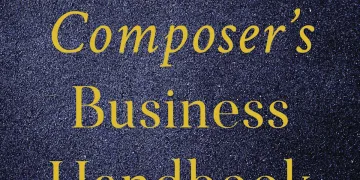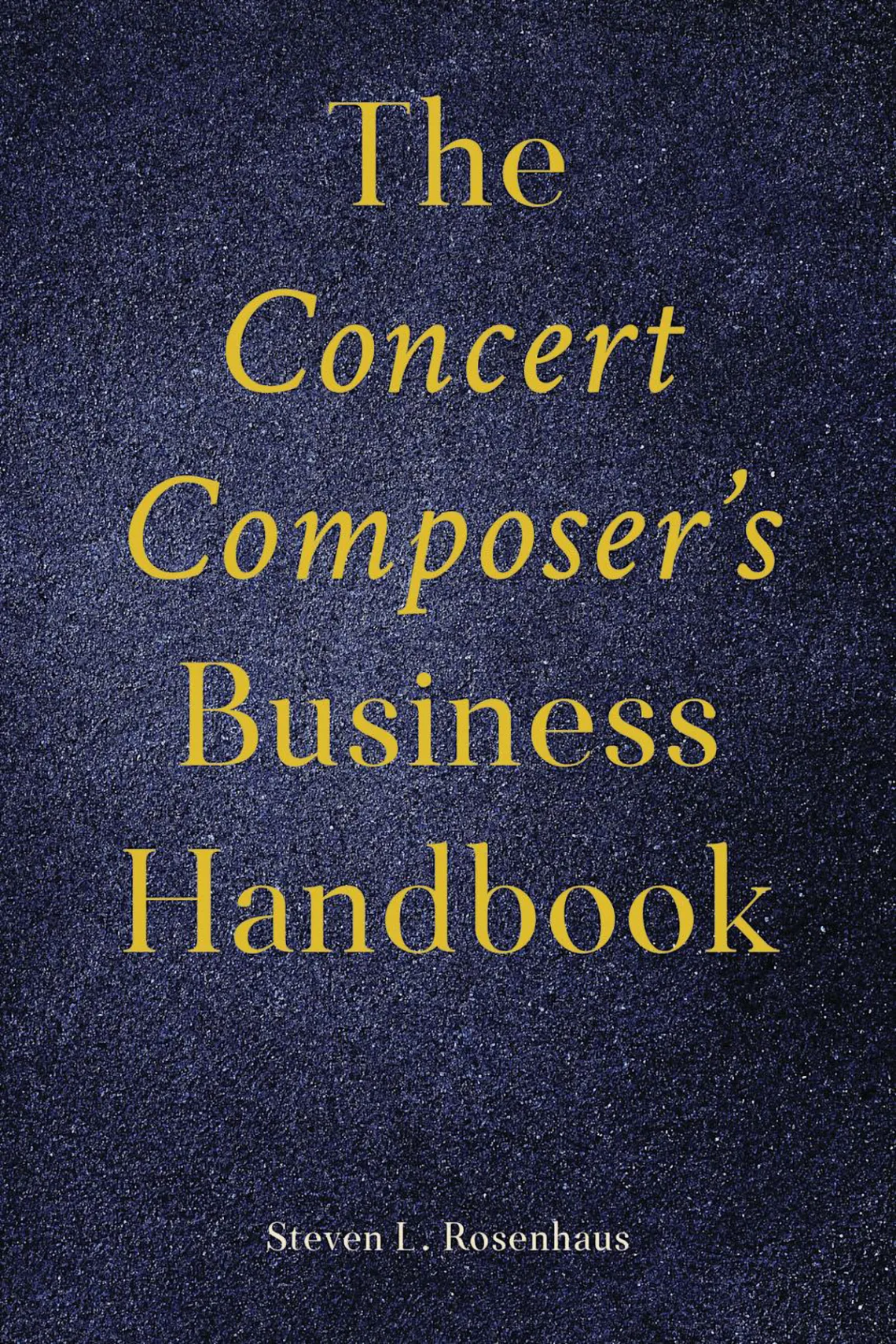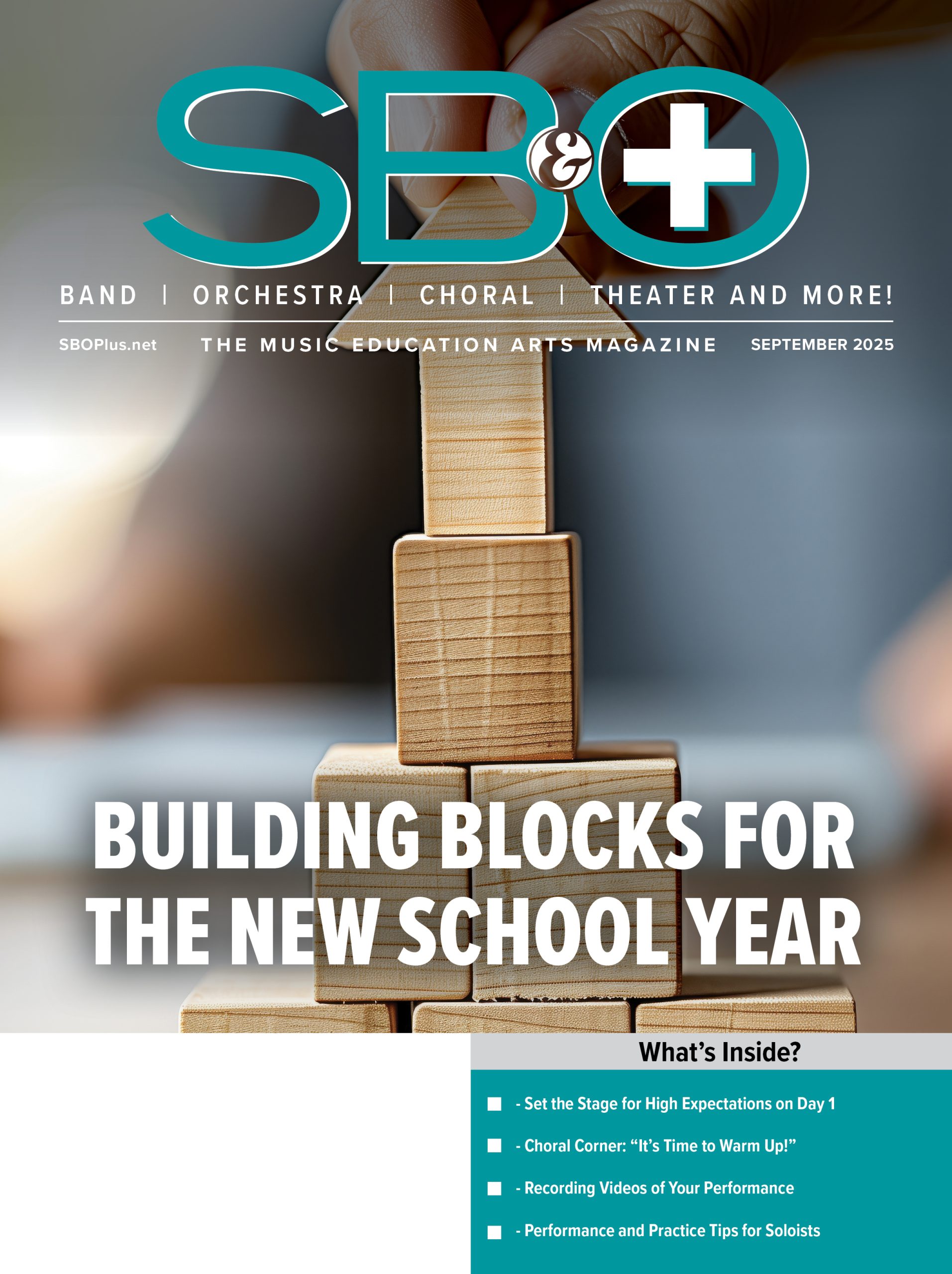By Jon Bubbett
When most people imagine the life of a composer, they think of the artistic side: a blank page filled with notes, a melody taking shape, and a piece coming alive in rehearsal. What often gets overlooked is what happens after the composing is done. How does the work get protected, published, or performed—and how can it help sustain a career?
Steven L. Rosenhaus tackles these questions in The Concert Composer’s Handbook, a practical and highly readable guide to the business of composition. Spanning 221 pages, the book addresses copyright, royalties, publishing, networking, contracts, and finances with clarity and authority. Where many resources focus only on technique, Rosenhaus fills the crucial gap of showing how composers can build and maintain professional lives.
Copyright
The opening chapter on copyright is one of the most useful. Often viewed as complex and intimidating, copyright becomes understandable thanks to Rosenhaus’s step-by-step explanations. He details how to register a work, what falls under public domain, and how borrowed materials may be used. His walkthrough of application forms is especially valuable for those new to the process.
Income Streams / Performing Rights Organizations (PRO)
He then surveys the many income streams available to composers, including competitions, grants, commissions, and arranging work. Particularly strong are his explanations of synchronization and mechanical licenses—topics that rarely receive such clear treatment. His overview of Performing Rights Organizations (ASCAP, BMI, SESAC) is equally effective, combining history with practical advice about affiliation and royalties.
Presenting and Promoting Yourself
The sections on self-promotion and networking stand out for their realism and practicality. Rosenhaus acknowledges that many composers dislike “selling” themselves, but he reframes promotion as relationship building. He offers concrete strategies for making introductions, following up, and submitting works to publishers, as well as advice for making a strong first impression through professionalism and preparation.
The Gig / Publishing Your Music
Commissions and publishing receive similarly thoughtful attention. Rosenhaus provides guidance on when to accept or decline a commission, how to negotiate deadlines, and what to expect from the commissioning process. His discussion of publishing contrasts the benefits of traditional companies with the flexibility of self-publishing. Particularly useful is his explanation of educational grading systems, which helps composers aiming for the school market.
Presenting Your Music
Attention to detail extends to music engraving and presentation. Rosenhaus emphasizes that well-prepared scores and recordings are not just aesthetic concerns but essential tools for making music marketable. From formatting to binding to promotional recordings, these small details, he states, can shape how conductors and publishers perceive a work.
Contracts / Finances
The chapters on contracts and finances—subjects many musicians would rather avoid but must master. Rosenhaus explains what contracts should include, particularly in commissioning agreements, and stresses how they protect both parties. His financial advice on recordkeeping, banking, and preparing for the IRS is similarly clear and pragmatic, underscoring the need for composers to develop business skills alongside creative ones.
What distinguishes this handbook is Rosenhaus’s tone. He writes with the authority of experience but the accessibility of a mentor. The result is a book that is both informative and approachable, offering concrete advice without overwhelming detail.
The Concert Composer’s Handbook fills an important gap in music literature. While countless books explore compositional craft, few address the practical realities of sustaining a career. Rosenhaus’s guide is that missing resource, equally valuable to aspiring composers and experienced professionals.
Verdict: A clear, practical, and encouraging guide, this book is more than a one-time read. It is a reference to return to whenever new challenges and opportunities arise. For any composer serious about building a career, it is essential reading.
The Concert Composer’s Handbook by Steven L. Rosenhaus, Rowman & Littlefield Publishing Group, 2025 · 221 pages · $26.60



























